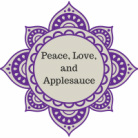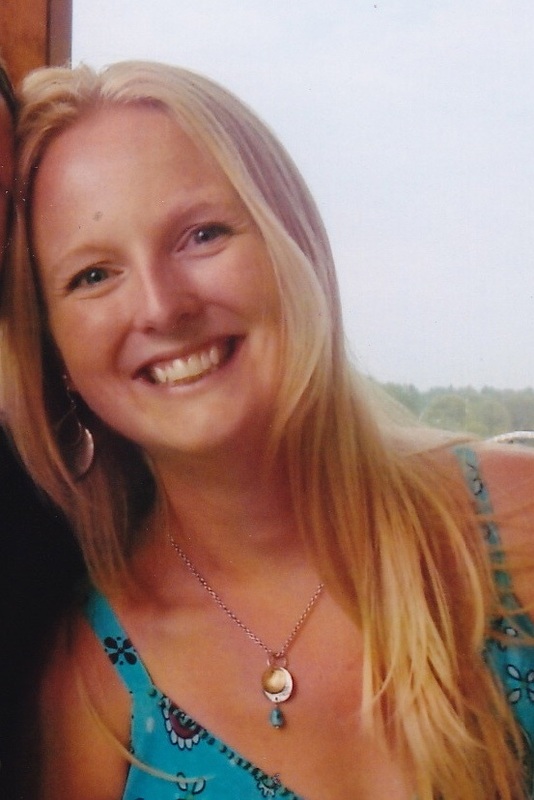~BREATHE~
~Lessons Learned From a Children's Book~
By Janine Bibeau
We live in a stressful world. Stress is a part of life no matter who are you are. As adults, we know when we are at our breaking point. We most likely know some of the triggers that can push us over the edge. Children also feel stress. They feel their own stress and they can feel yours too.
Learning to cope with stress is one of life's most important lessons because ...stress happens at every age.
So, how do you cope? I have found that years of practicing yoga has helped me to reset my mind and body. Through this practice, I have made a permanent change. In this blog post, I will focus on the yogic coping skill that I have found to be the most effective for myself and my clients.
~Lessons Learned From a Children's Book~
By Janine Bibeau
We live in a stressful world. Stress is a part of life no matter who are you are. As adults, we know when we are at our breaking point. We most likely know some of the triggers that can push us over the edge. Children also feel stress. They feel their own stress and they can feel yours too.
Learning to cope with stress is one of life's most important lessons because ...stress happens at every age.
So, how do you cope? I have found that years of practicing yoga has helped me to reset my mind and body. Through this practice, I have made a permanent change. In this blog post, I will focus on the yogic coping skill that I have found to be the most effective for myself and my clients.
Your breath is a more powerful tool than you can imagine.
You breathe in and oxygen flows into the lungs, which is then carried through the blood stream to nourish every part of your living body. Your breath is your living existence, your life force, your prana.
When we feel stress of any kind, our body and mind react. We switch into survival mode. Our heart races and the breath quickens. This is our body trying to get more oxygen and cope with the stress. It is preparing to flee the stressful situation. This all stems back to times when it was not uncommon to have to run from a predator while out in the wilderness hunting or gathering.
You breathe in and oxygen flows into the lungs, which is then carried through the blood stream to nourish every part of your living body. Your breath is your living existence, your life force, your prana.
When we feel stress of any kind, our body and mind react. We switch into survival mode. Our heart races and the breath quickens. This is our body trying to get more oxygen and cope with the stress. It is preparing to flee the stressful situation. This all stems back to times when it was not uncommon to have to run from a predator while out in the wilderness hunting or gathering.
Scott Magoon has written a beautiful children's book that illustrates so clearly the importance of taking moments to breathe throughout our day. Each page of the book Breathe depicts an event of a whale's day. Some events are joyous and fun, others are stressful. The important lesson is that the whale could not control everything that happened to him. What he could control is how he reacted. He took time throughout the day to stop and breathe.
And it wasn't just after the stressful events that he took a few moments to breathe. Take time to practice your breathing skills before the stress happens!
No matter what your age, you can learn to control your breath and use it as a tool to calm the body and mind. It takes practice. So practice when you are not stressed to the max. That way when you are stressed, your body will know what to do. Make it a habit like the whale.
When a child is upset, we often tell them to "take a deep breath." Sometimes it works. It works really well if that child has been taught how to breath and has had time to practice! The same goes for you. Use the guide below to learn and practice your breath. You can even practice with the whole family!
Be prepared for stress in your life. Someone cuts you off. A pipe bursts in your home. Something at your job goes haywire....anything can happen. So practice first!
And it wasn't just after the stressful events that he took a few moments to breathe. Take time to practice your breathing skills before the stress happens!
No matter what your age, you can learn to control your breath and use it as a tool to calm the body and mind. It takes practice. So practice when you are not stressed to the max. That way when you are stressed, your body will know what to do. Make it a habit like the whale.
When a child is upset, we often tell them to "take a deep breath." Sometimes it works. It works really well if that child has been taught how to breath and has had time to practice! The same goes for you. Use the guide below to learn and practice your breath. You can even practice with the whole family!
Be prepared for stress in your life. Someone cuts you off. A pipe bursts in your home. Something at your job goes haywire....anything can happen. So practice first!
Give it a try:
1. Sit comfortably in a chair with feet flat on the ground.
2. Bring your hands up to rest on your lap.
3. Draw the crown of your head toward the ceiling, bringing your back away from the back rest, and growing the spine tall.
4. Inhale slowly and fully through the nose. Fill the lungs.
5. Exhale slowly and fully through the nose. Deflate the lungs.
6. Try to match the length of your inhale and the length of your exhale.
7. Focus on your breath. Slow down. Breathe.
Sounds simple enough right? Give it a try. Breathe in and out for at least 5-10 full breaths. Notice how you feel when you are finished. If it is challenging to focus on your breath, begin by relaxing the shoulders. Take a little more time to set it up and make sure your body is ready. Roll your head a few times. You can even try sighing out of the mouth loudly before you begin.
Practicing once will help once. Practice everyday and you will begin to really see a change. Your body will naturally turn to this breath when it is stressed. You may not even notice it until the situation has passed! It only takes a few minutes. Dedicate that time to yourself! You deserve it.
1. Sit comfortably in a chair with feet flat on the ground.
2. Bring your hands up to rest on your lap.
3. Draw the crown of your head toward the ceiling, bringing your back away from the back rest, and growing the spine tall.
4. Inhale slowly and fully through the nose. Fill the lungs.
5. Exhale slowly and fully through the nose. Deflate the lungs.
6. Try to match the length of your inhale and the length of your exhale.
7. Focus on your breath. Slow down. Breathe.
Sounds simple enough right? Give it a try. Breathe in and out for at least 5-10 full breaths. Notice how you feel when you are finished. If it is challenging to focus on your breath, begin by relaxing the shoulders. Take a little more time to set it up and make sure your body is ready. Roll your head a few times. You can even try sighing out of the mouth loudly before you begin.
Practicing once will help once. Practice everyday and you will begin to really see a change. Your body will naturally turn to this breath when it is stressed. You may not even notice it until the situation has passed! It only takes a few minutes. Dedicate that time to yourself! You deserve it.




 RSS Feed
RSS Feed